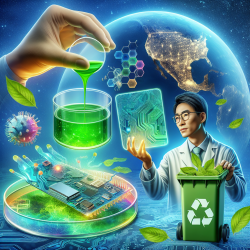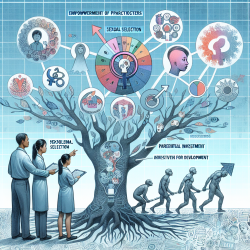The rapid advancement of consumer electronics has brought about significant economic growth and technological innovation. However, it has also led to a parallel increase in electronic waste, posing environmental and health challenges. To address these issues, researchers are turning to emerging polymer chemistries to develop recyclable, biodegradable, and biocompatible electronics.
The Need for Sustainable Electronics
With approximately 50 million tons of electronic waste generated annually worldwide, only a fraction is recycled. The majority ends up in landfills or incinerators, releasing harmful chemicals into the environment. This highlights the urgent need for eco-friendly materials that can be seamlessly integrated into both modern society and natural ecosystems.
Emerging Polymer Chemistries: A Game Changer
The integration of recyclable, biodegradable, and biocompatible polymers into electronic devices offers a promising solution. These advanced materials are designed to break down under specific conditions without leaving a negative environmental footprint.
- Recyclable Polymers: These materials can be reprocessed into new products or broken down into their original monomers for reuse. Techniques like chemical recycling offer efficient ways to recover valuable components from electronic devices.
- Biodegradable Polymers: Designed to decompose into non-toxic byproducts under environmental conditions or within the human body, these polymers reduce waste and minimize health risks associated with traditional electronics.
- Biocompatible Polymers: These materials interact safely with biological systems, making them ideal for wearable and implantable devices that require close contact with human tissue.
Implementing Sustainable Polymers in Electronics
Integrating these innovative polymers into electronic devices requires a multidisciplinary approach involving chemistry, engineering, and materials science. Here are some key strategies:
- Molecular Design: Tailoring polymer structures at the molecular level to achieve desired properties such as recyclability or biodegradability.
- Characterization Techniques: Employing advanced analytical methods to evaluate the performance and environmental impact of new polymer-based materials.
- Collaboration Across Disciplines: Encouraging partnerships between academia, industry, and government to accelerate the development and adoption of sustainable technologies.
The Future of Sustainable Electronics
The potential applications of these emerging polymer chemistries are vast. From eco-friendly consumer gadgets to medical implants that safely degrade within the body, the possibilities are endless. By embracing these innovations, we can pave the way for a more sustainable future in electronics.
For practitioners looking to enhance their skills or conduct further research in this field, understanding these polymer technologies is crucial. By staying informed about the latest advancements and collaborating with experts across various domains, we can collectively drive progress toward greener electronics.










